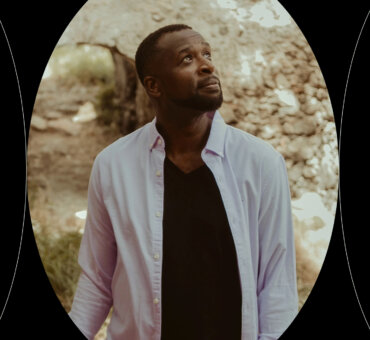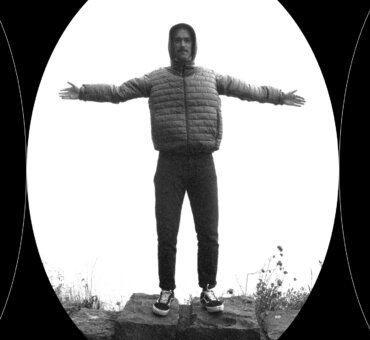Everyone wants to be a prodigy. Our culture and generation idolize God-given talent above all else. We’re all waiting for our “gifts” to be discovered — by our industry, by our peers, and even by ourselves. But it’s not long before you’re 30 and you realize you still don’t know how to play the cello. You’ve never looked at a piano and it just made sense to you. You’ve never solved a math equation on a hallway chalkboard at Harvard. By law of statistics, the vast majority of us are unspectacular. So what then? How does a creative person deal with being a late bloomer in a world that’s seemingly full of wunderkinds?
First of all, take comfort in the fact that you’re not alone. Orson Welles, the precocious creative genius of The War of the Worlds radio drama fame, peaked at age 25. Meanwhile, Alfred Hitchcock, who didn’t break into Hollywood until he was 40, would go on to create his most well-known and critically acclaimed work (including Rear Window, Vertigo, and Psycho) between the ages of 54 and 61.
Being a late bloomer is vastly underrated. Here are a few reasons why.

1. YOU NEVER KNOW WHAT YOU MIGHT HAVE MISSED OUT ON
A funny thing happens while you’re waiting around to become a successful creative: You become a better creative. In that time before you’re a “somebody,” you get the chance to become yourself. Success can often be distracting (which we’ll talk about later) and confusing (we’ll talk about that too). We grow the most when nobody is looking. That’s why Elle Ginter, a 29-year-old director who only recently began making a name for herself, is so thankful she didn’t start directing a moment earlier:
Elle Ginter: “One thing I’m really grateful for is that I waited a while to pursue directing. I’m 29. A lot of people start directing when they’re 23 or something. But I’ve had the chance to work with a lot of directors. To be mentored by a lot of directors. I’ve gotten some really good advice along the way that has kept me out of trouble. For example, I learned how important it is not to burn out by trying to do too much too soon. I learned to be very careful with what favors I call in, to never burn bridges — basically to be really strategic about how I moved into directing. I didn’t want to ask anyone for money to do these projects. I didn’t want to try to do something that was beyond my limits and then end up in debt. I wanted to be peaceful and happy.”
There is a great advantage to taking your time, asking questions, and finding success when the time is right.

2. YOU MIGHT BE HAPPIER
We think success is going to “make” us. But oftentimes the opposite is true. Look at 90% of child actors. Early success can ruin us creatively, if not personally. And the fact is, no matter when we find success, it almost never brings us the happiness we were hoping for. Happiness — sustainable happiness — has to come from something far less volatile: relationships, faith, or just a love for the work itself. Here is actress Sarah Paulson (The People v. O. J. Simpson, American Horror Story) explaining to GQ why finding success later in life was the best thing that could have happened to her.
Sarah Paulson: “If my career had turned out like the fantasy I had of what it was going to be, it would never have made me happy. But I couldn’t have known that until it didn’t happen. I found a success that is so much bigger and deeper and better, and it’s because it happened later. If any of what I’m having happen now — the successes — would have happened to me when I was younger, I would have been ruined. Because when you’re young, and things come super easily to you, and you have success right out of the gate, you’re liable to think that’s how it actually works. You start to think you don’t need to be fully prepared or committed to have these things meet you.”
Sometimes the most important lessons we learn in life and creativity come from the things that don’t happen to us. Don’t let them go to waste.

3. YOU’LL LEARN THE MOST IMPORTANT LESSON: GRIT
If there is one quality that trumps all others in a creative career, it’s perseverance. The ability to keep going when the going seems absolutely, completely, and 100% pointless. Your talent will only get you so far. You need grit to take you the rest of the way. And grit is exactly what those years before success — decades, sometimes — will teach you: how to keep creating when nobody’s watching, how to keep putting work out there when nothing is coming back.
“Our potential is one thing,” educator and grit expert Angela Duckworth says. “What we do with it is quite another.”
During those early years of striving, you are building up the muscles you’ll need to go the distance. It’s a long journey. You need good legs.

4. YOU WORK DIFFERENTLY THAN A PRODIGY. JUST ACCEPT IT.
In his fantastic New Yorker essay, “Late Bloomers,” Malcolm Gladwell explains that late bloomers often “bloom late not as a result of some defect in character, or distraction, or lack of ambition, but because the kind of creativity that proceeds through trial and error necessarily takes a long time to come to fruition.”
Whereas the wunderkind creative often has a clear idea of what they want to do and then executes it, late bloomers are prone to experimentation and iteration. They revisit the same ideas over and over again, in different ways, for years until they find the one they’re after. This takes a long time obviously. The reason you feel like a late bloomer might have nothing to do with your talent or your potential, but merely your bent toward a particular way of working. The big danger, of course, is that the late bloomer will lose heart before their work comes to fruition. “On the road to great achievement,” Gladwell writes, “the late bloomer will resemble a failure: while the late bloomer is revising and despairing and changing course and slashing canvases to ribbons after months or years, what he or she produces will look like the kind of thing produced by the artist who will never bloom at all. Prodigies are easy. They advertise their genius from the get-go. Late bloomers are hard. They require forbearance and blind faith…. Whenever we find a late bloomer, we can’t but wonder how many others like him or her we have thwarted because we prematurely judged their talents.”
Have faith. You’ll get there.

5. EARLY SUCCESS CAN GET YOU OFF COURSE
Success can do something weird to our internal compass. Like electromagnetic zones, recognition reads like true north when, in reality, it could be leading us off course. Success is disorienting, which is exactly what composer A. J. Hochhalter experienced a few years ago when one of his projects, Blood Brother, made it all the way to Sundance.
Do you feel like [getting to Sundance] distorted your view of your work?
It totally did. It made me idolize the older stuff I’d written, the stuff that was in [Blood Brother]. I would use that as the measuring stick, which doesn’t make any sense. But it’s hard to climb out of that when you feel like you’ve already done your best work. It’s hard to get started again. You sit down in front of the piano, and it’s like, “Do I even know how to do this anymore?” You start thinking maybe it’s time to quit and go do something else.
What do you feel like you’ve learned through all this?
I’ve learned not to make the way you feel about your art the main focus of your life. Don’t make what someone thinks about your stuff — or how many plays it gets or how many downloads it gets or how many IMDb credits it has — the main thing; because even if you do succeed, you’re going to be a wreck. When your life is focused on other things and then something cool does happen, you can accept it as just being something cool.
The advantage of being a late bloomer is that by the time success strikes, you’ve got your bearings about you. You know where you’re going. You take success for what it is without getting turned in circles so easily. By that point, you’ve spent enough time outside that you can read the stars.





















































































